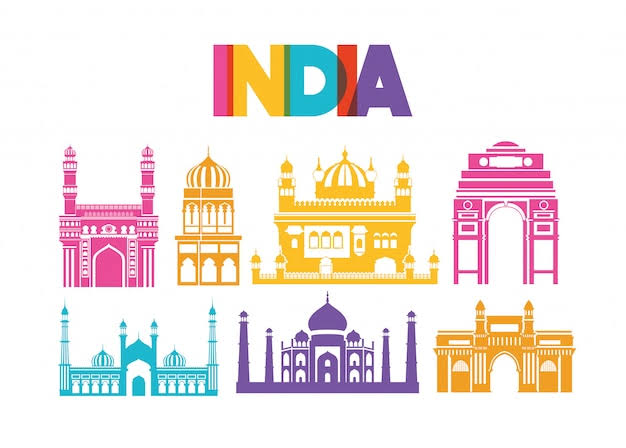India is full of incredible monuments, each with a story that goes far beyond its stone and marble. Here’s a quick tour of ten of the most iconic sites and what makes them so important to the country’s history.
Taj Mahal, Agra: Probably the most famous monument in India, the Taj Mahal was built by Shah Jahan for his wife Mumtaz Mahal. It’s more than just a beautiful building—it’s a symbol of love and a masterpiece of Mughal architecture.
Red Fort, Delhi: This was the main residence of the Mughal emperors. Today, it’s where the Prime Minister addresses the nation every Independence Day, making it a powerful symbol of India’s journey to freedom.
Qutub Minar, Delhi: Standing tall since the 12th century, this minaret is a reminder of the Delhi Sultanate and is covered with intricate carvings.
Gateway of India, Mumbai: Built to welcome British royalty, this arch later became a symbol of India’s independence when the last British troops left from here.
India Gate, Delhi: This war memorial honors Indian soldiers who died in World War I. It’s a place where people gather to remember and pay their respects.
Humayun’s Tomb, Delhi: This beautiful garden tomb was the inspiration for the Taj Mahal and marks a turning point in Mughal architecture.
Golden Temple, Amritsar: The holiest site in Sikhism, it’s open to all and known for its golden dome and peaceful atmosphere.
Hawa Mahal, Jaipur: Called the “Palace of Winds,” its unique design let royal women watch street life without being seen.
Sanchi Stupa, Madhya Pradesh: One of India’s oldest stone structures, this Buddhist site dates back to the 3rd century BCE.
Charminar, Hyderabad: Built in 1591, this monument is at the heart of Hyderabad and a symbol of the city’s rich history.
These monuments aren’t just tourist spots—they’re living reminders of India’s past and the many cultures that have shaped it.
Source: Pure Destinations, SOTC, SuperbWorldTrip, Testbook, PNCCS
